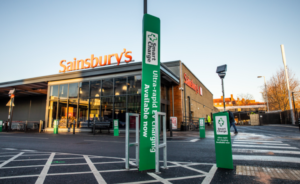Glasgow bus firms branded a ‘disgrace’ as £8m emissions fund remains unused
No bus companies have applied for the £7.89m fund set up by the Scottish Government to help them meet new emissions standards, with just days until the deadline for applications expires, The Ferret has revealed.
Friends of Scotland have branded the bus companies a ‘disgrace’, saying that they had complained about the costs of upgrading their fleet to meet air quality standards in new Low Emission Zones.
However, First Bus, the largest bus operator in Glasgow, have said they will not apply for any funding until the Scottish government provides 100% of the money it will cost to retrofit their affected vehicles (they are currently offering 40% of the cost through the fund).
Scotland’s first low-emission zone (LEZ) came into effect in Glasgow on Monday December 31.
The first phase of Glasgow’s LEZ will mean 20% of all buses that pass through the city must now meet emissions standards that comply with EU standards.
Friends of the Earth Scotland air pollution campaigner Gavin Thomson said: ‘This is a disgrace. Glasgow’s major bus companies are clearly more interested in profit than in saving lives. Public money has been available for 5 months to improve air quality on our streets, but it’s not being used.
‘Companies seem happy to profit from older buses that continue to belch out toxic fumes on our streets. Because of their inaction, there’s been no improvement to air quality, and no change to the huge health impacts suffered from air pollution.
‘This “idling” from the bus companies means there have been 5 months of preventable emissions from buses, of higher levels of pollution than there should be, of more children with asthma, more strokes and heart attacks.
‘Glasgow’s Low Emission Zone has already launched, but it gives bus companies years to get their dirty old vehicles off the streets. The Council need to push every bus company that operates in the city to upgrade their fleet. This is a public health issue and isn’t being treated seriously. We need cleaner air now, the money is there, the bus companies are sitting on their hands’.
Get Glasgow Moving campaigner Ellie Harrison added: ‘This is outrageous behaviour from private bus companies. It’s disgusting that they would delay improving their vehicles, even though the taxpayer is paying for it!’
First Bus told AirQualityNews that they have concerns over the viability of the scheme given comparative retrofit schemes in England and Germany, and have called on the Scottish Government to better compensate the bus companies to transition before they apply for any funding.
Andrew Jarvis, managing director, First Bus said: ‘The uncertainty and gap in funding has undoubtedly impacted on our retrofit programme. If we have to pay the difference between the 40% of Bear 2 and 100% of the actual cost, our only choice is for customers to pay for them as part of the prices they pay.
‘As yet, we have not applied for the Bear 2 grant. We have an agreed retrofit programme in England of over 500, which we are busy fitting, with another 500 being bid for. This will have a huge benefit for Air Quality in English towns and cities. But in Scotland, all that’s been agreed is 9 retrofits as part of the Bear 1 fund.
‘It is crucial that we all continue to work together in partnership to come up with a solution to this issue which is in the best interests of all involved. As a business, we are committed to investing in vehicles with ultra-low-emissions that assist with improving air quality. Buses is a big part of the solution to air quality, as well as being a source of some of the emissions.
‘A full double-decker bus can take 75 car drivers off the road. This is the reason that since October 2018, First Glasgow alone have invested £30m in new ultra-low emission Euro VI diesel vehicles to support the implementation of the Low Emissions Zone in Glasgow city centre.’
AirQualityNews interviewed Cllr Anna Richardson of Glasgow City Council about the Low Emission Zone last month.

















